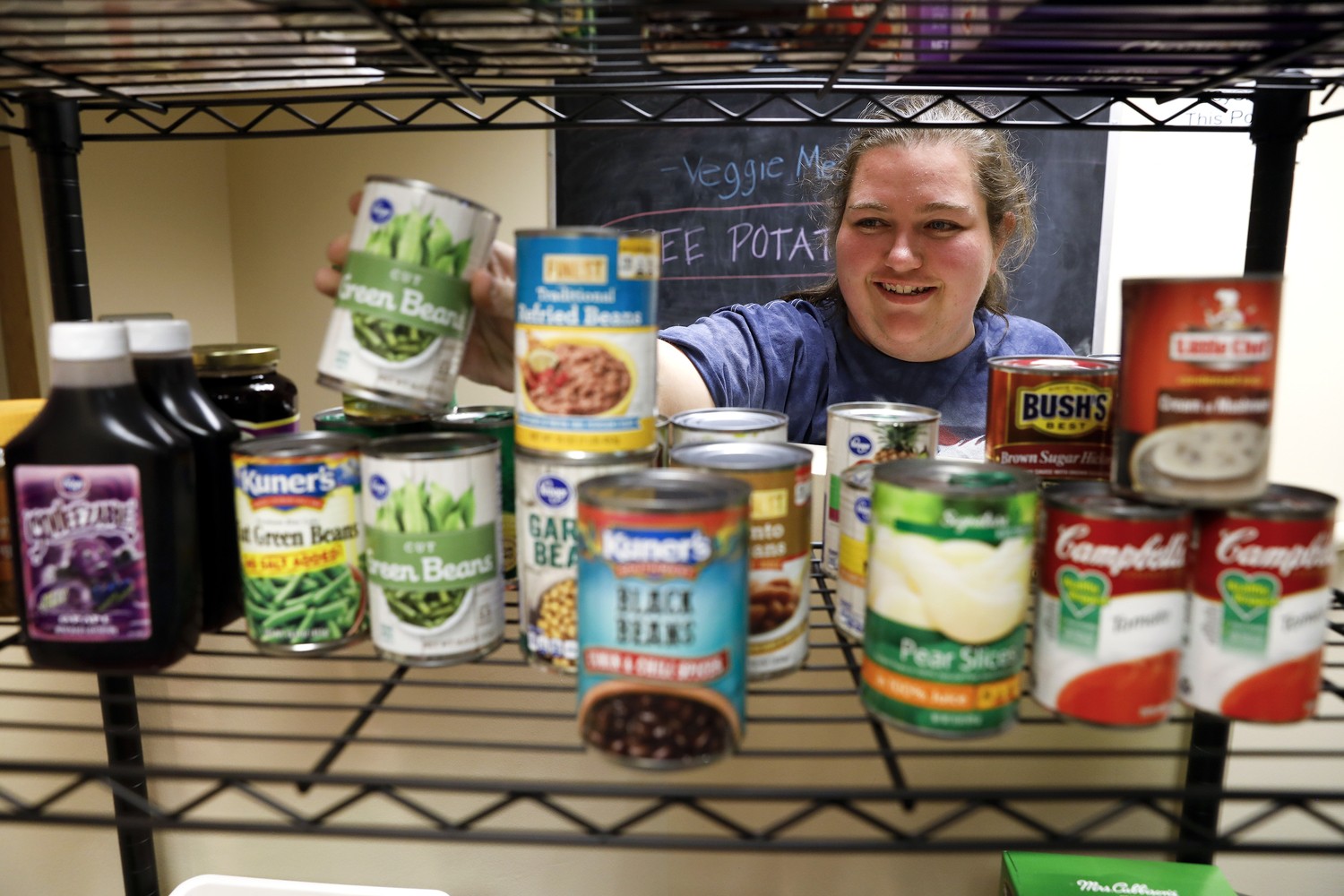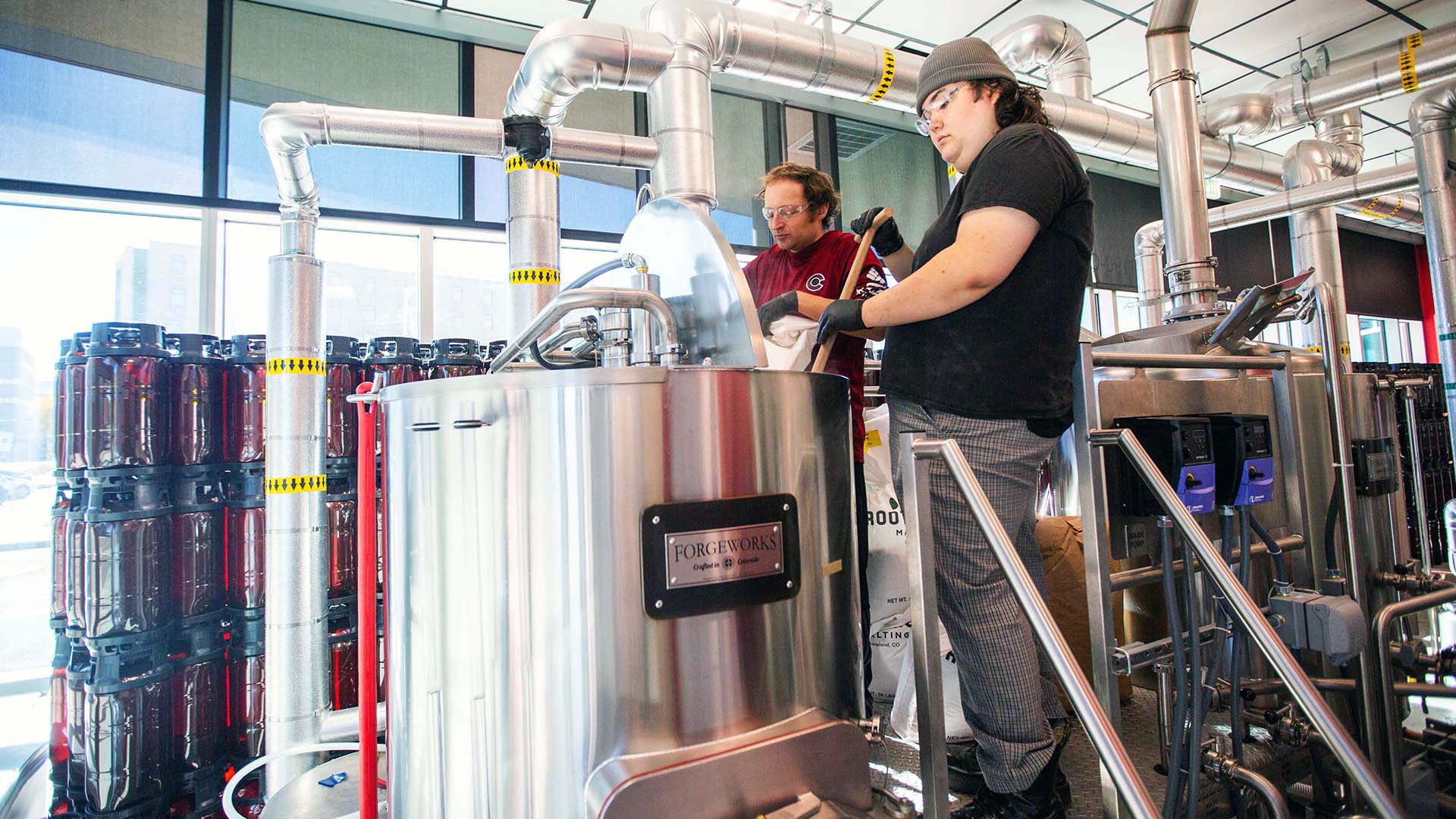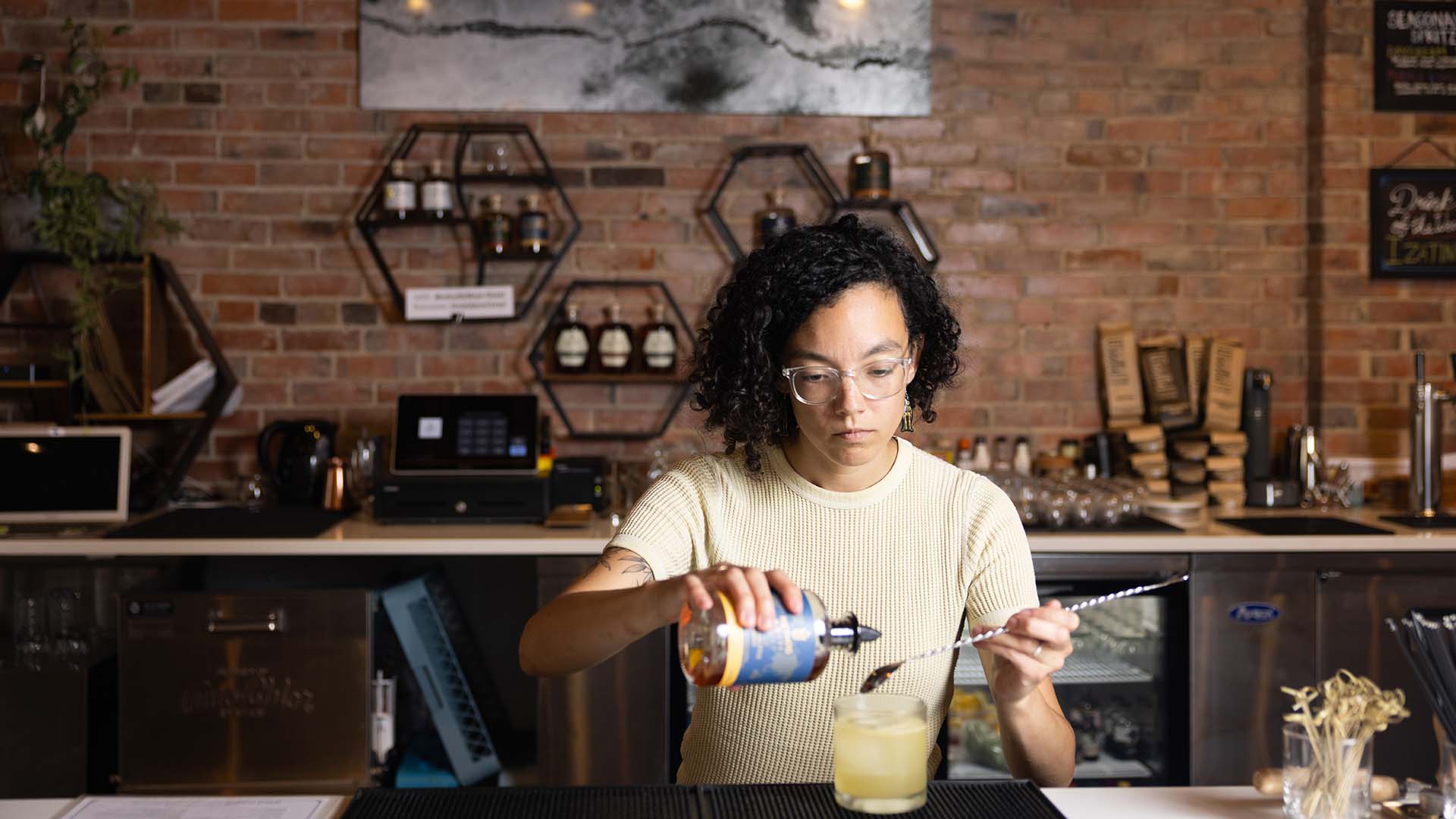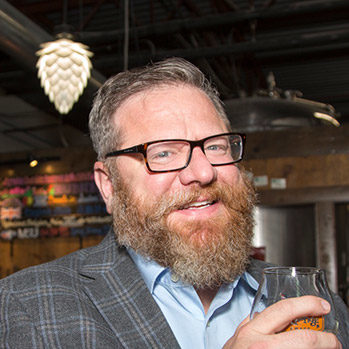Fighting hunger with research… and Brussels sprouts
Roadrunners turn applied study into sustainable resources for addressing food insecurity throughout Denver.

More than one in 10 Coloradans struggle with hunger, while nearly one of every six children may not know where their next meal will come from.
Sobering statistics, to be sure – and ones the college community isn’t exempt from.
“If a student is hungry, it’s a lot harder for them to learn,” said Kelli Frank, CARE coordinator and head of the MSU Denver Food Bank.
“Many don’t realize how common that is right here on campus.”
The challenge of addressing hunger is both individual and systemic. Eating a candy bar might stop hunger pangs in the short term, but what else is being consumed? What’s available? And how does this fit into broader conversations of health and wellness?
“Populations can be vulnerable for food insecurity because of socioeconomic issues,” said Bruce Rengers, Ph.D., RDN, professor of nutrition.
“Everyone needs sustainable access to healthy food.”

How far can $500 go?
Pretty far, actually.
Rengers, who was initially awarded that amount in a grant from MSU Denver’s Applied Learning Center, put the money to use in his service-learning class on community nutrition. After an initial pilot, he and students looked at the nutritional quality of the food distributed by Metro Caring, Denver’s largest hunger-relief organization.
From that grant, Rengers was able to purchase scales to weigh donated food and incentivize clients to record their selections when visiting the agency at 18th and Downing.
Data revealed that, while getting many nutrients from the items chosen, participants were receiving only about half the nutritionally recommended amount of calcium.
The organization used this information to then prioritize partnership-building with milk producers to address the gap – a real-world application of student work.
“As a nonprofit, we want to know the outcomes and that what we’re doing has a lasting impact,” said Lannea Hand, RDN, nutrition programs manager for Metro Caring.
“It’s really been a great partnership working with MSU Denver students, as they gain experience and give us so much back as well – we all benefit.”
Today, Roadrunners participate in clinical, community and food service internships that provide them with invaluable professional opportunities, while the organization gets information and ways to put it all into action. Similar studies have also subsequently been repeated four times, involving research that has led to a recent conference presentation, further grant applications and the hiring of another full-time nutrition position at Metro Caring.
“Students have gotten really involved, developing an ownership of nutrition as a discipline,” said Rengers. “They say ‘Wow, it’s more than studying – I’m really a part of it.’”

Food is also just the beginning.
When people seek hunger assistance, it leads to larger conversation around topics like health management and education. That’s why organizational commitment to providing wraparound services is so important, said Eric Hicks, chief development officer for Metro Caring.
Working with fellow nutrition faculty Melissa Masters, students had a chance to evaluate and analyze instruction offered by the organization.
This included developing a needs assessment for gestational diabetes and interviewing children and caregivers to develop educational material in both English and Spanish.
Roadrunners are used to building civic connections. And at places like Metro Caring, it’s a natural fit to broaden these efforts into incorporating nutritional advocacy as a common bond, said Hicks.
“From a need for diabetes education to job training and identification assistance, people come into contact with us with complex situations,” added Hand. “We want to meet them where they’re at when they walk in the door.”

That leads to a somewhat unorthodox question: What do you do with Brussels sprouts?
Not just the bane of picky eaters, the leafy green is rich in vitamin C and vitamin K. Unfortunately, it’s also often not the first (or second, or third) item reached for by those living with food insecurity.
“When you don’t have much money, you’re looking for the most bang for your buck – that’s why we see the drive to eat quick calories, not fruits and vegetables,” said Rengers. “But nutrition is important because it’s so much more than just receiving food.”
The sprout, a miniature member of the cabbage family, is often among items that show up at at Metro Caring as past-sale-but-still-good donations from chain grocers. And since supply varies with each shipment, a major effort has been partnering with MSU Denver students to show visitors how to understand the nutritional makeup and preparation of items from unfamiliar squashes to pungent cheeses and kiwis.
The result from these recipe demonstrations is delicious, informative and empowering. And it’s won over even the most stalwart of palettes.
“Before our MSU Denver students and other volunteers prepared them for our community member, I never liked Brussels sprouts,” said Hand. “But the recipes were so delicious, I even came to love them!
“We all have something to contribute and learn, whether we’re a participant, registered dietician, student or volunteer.”

Roadrunners have built another resource that’s close to academic home, too.
Launched by students nearly a decade ago, the MSU Denver Food Bank is housed within the Dean of Students Office to serve as a vital nutritional supplement. Those enrolled in any courses can stop by to pick up items to bring home for preparation or get a quick snack.
The donation-based enterprise is small but mighty and a beloved group that makes a big difference to those who make up the nearly 2,000 unique visits each year, Frank said.
“Food insecurity can hit anyone at any time, at different segments of their life; sometimes it’s a struggle between trying to decide between buying groceries and keeping the lights on.”
In addition, the food bank also stocks toiletries and serves as a link to other assistant resources, both on campus and off.
The task of eliminating hunger is multifaceted, and the road ahead is tough. But through applied research, connection and service, progress is being made.
And it’s thanks, in part, to those who work and study with MSU Denver.
“It’s tricky to try and meet every need, but they all matter,” said Frank. “Every little bit of support helps our community; nothing is given in vain.”






